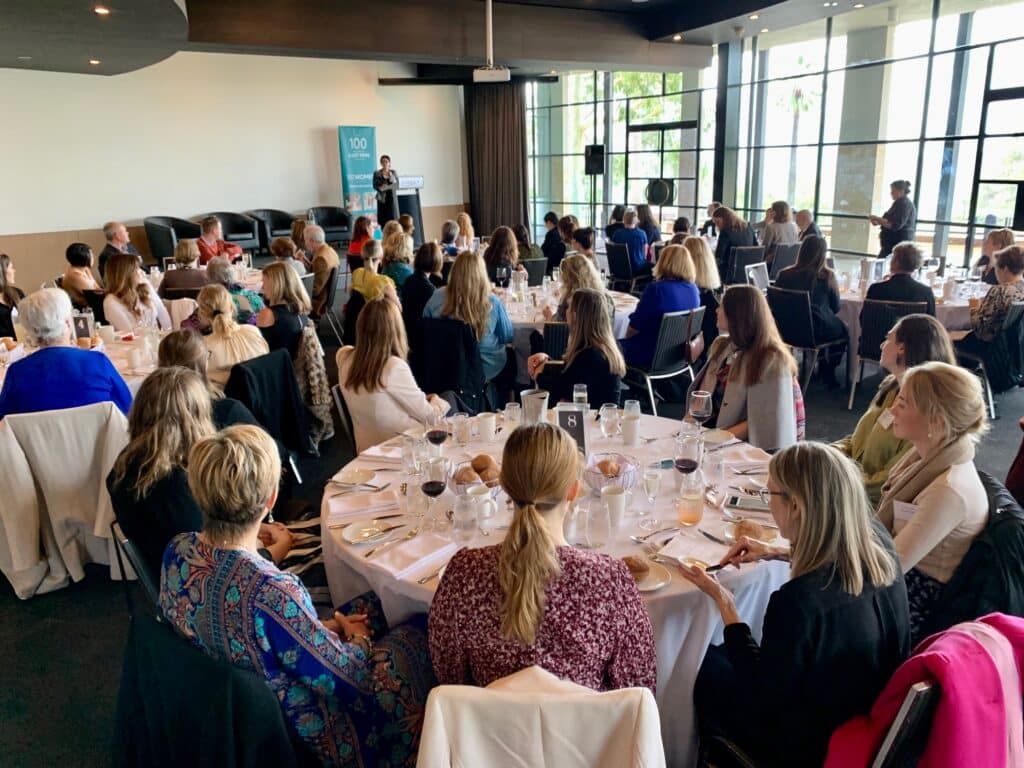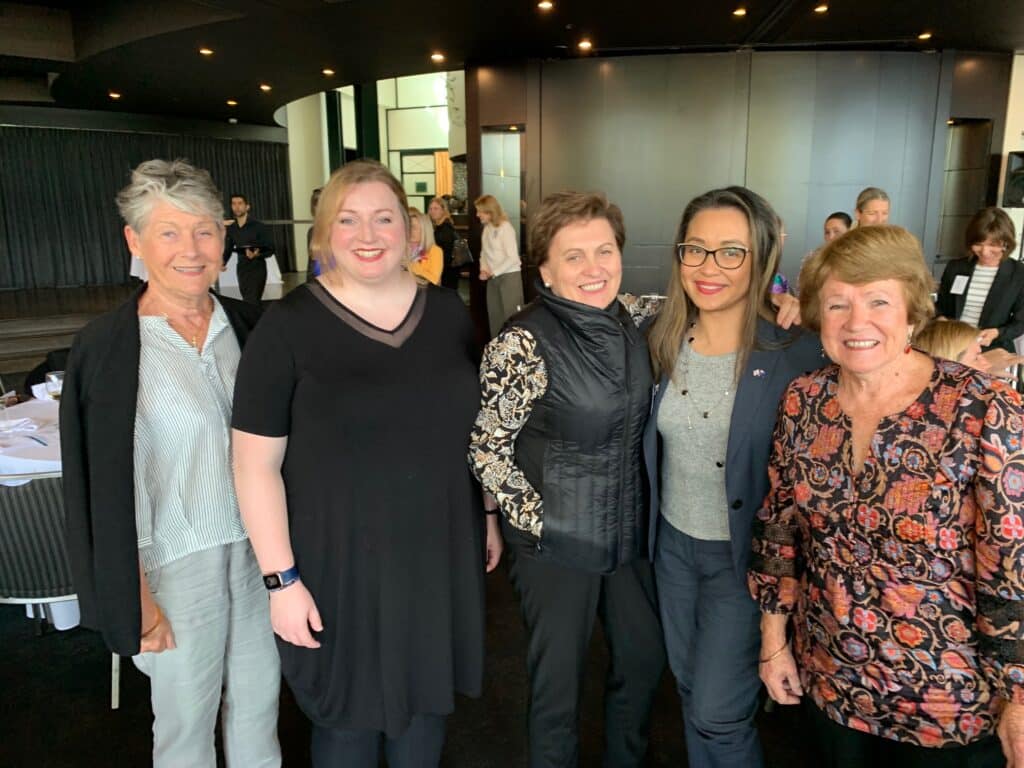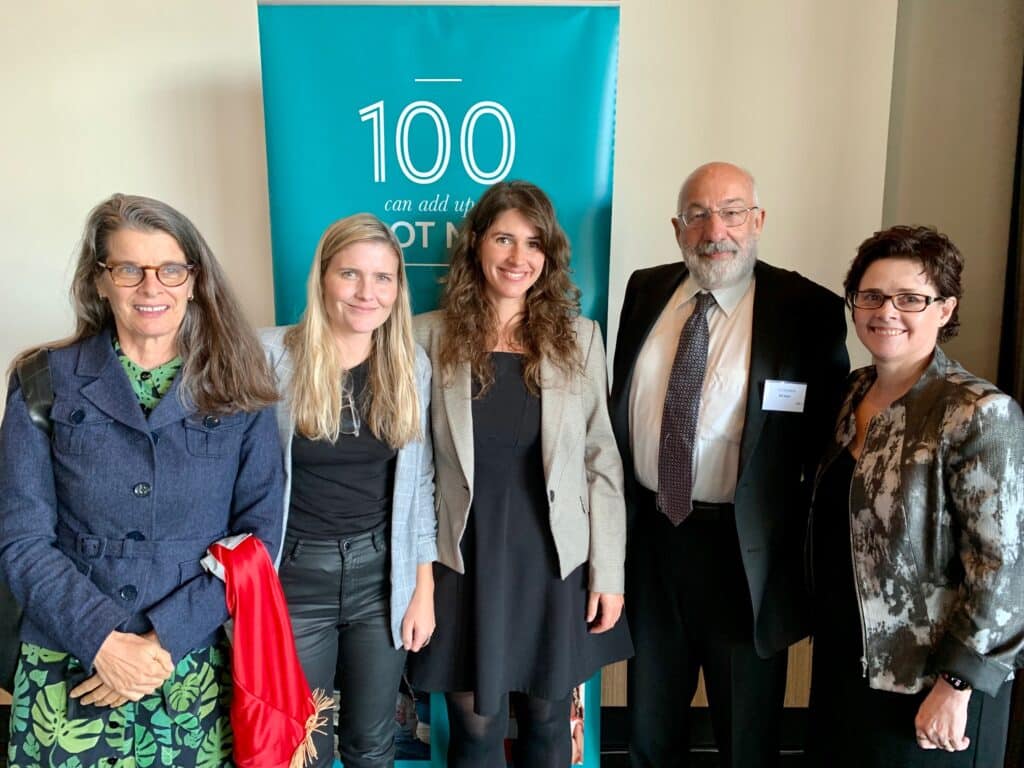Climate change starts with us.
In May, more than 80 members and guests joined us at a Lunch & Learn event focused on Climate Action and Inspiration at Kings Park Frasers Reception Centre. Our guest speakers included Sophie McNeill, Journalist and 100 Women Ambassador, Jessica Panegyres, Head of Clean Energy Transition for Greenpeace, Bill Hare, CEO of Climate Analytics and Catrina Luz Aniere of Millennium Kids.
Climate change disproportionately affects the world’s most socioeconomically vulnerable people, of which over 70% are women*. Some of the major issues around gender inequity in Climate Change include:
- Natural disasters kill more women than men
- Gender inequity with access to healthcare
- Violence against women
- Poverty and familial (unpaid) responsibilities
- Women’s paid work roles (health, agriculture are the most affected)
- Lack of women in leadership roles where it counts
Despite the challenges we face, there are endless opportunities to implement life-changing climate change initiatives in partnership with local communities. The health and economic benefits to women and their communities are immediate, and there are other, longer-term gains in emission reductions and building community resilience.
“Limiting global warming to 1.5 degrees means everything: Jessica said. ‘And we have just 8 years to turn this around. Climate change is a threat multiplier. What this means to women is that if you are already in a place of disadvantage- then climate change amplifies this”.
“In India, women in local communities are responsible for gathering around 50 litres of water for their village from a local well every day. In a warming planet – she now runs the risk of severe overheating performing a daily routine”
Catrina Luz Aniere, CEO of Millennium Kids asked the audience to step up as a role models to our future generations. “Young people are infectious in their capacity to learn and create but we don’t have the right to be despondent anymore. Our kids will live in the world of our choices”
“Let’s look at the cascading impacts” Bill Hare, Climate Analytics CEO and Nobel Prize Laureate advised. “Melting glaciers, fires, agriculture crops and animals dying due to heat waves. This is our future. If we get 3% hotter then the analytics suggest that Western Australia could face annual heat waves and they are natural disaster’s biggest killer in our country”.
Systems are beginning to unravel and here in lies opportunity and hope. He said System changes (government legislation and frameworks) and behavioural changes must work together for us to slow warming. 100 Women sincerely thanks Sophie and the panel for such an inspiring discussion.
Key Takeaways:
1. Use your power as a citizen
2. Use your power as a consumer
3. Join with others / social change happens when people join with a common goal.
4. Philanthropy is an amazing way to make a difference.



